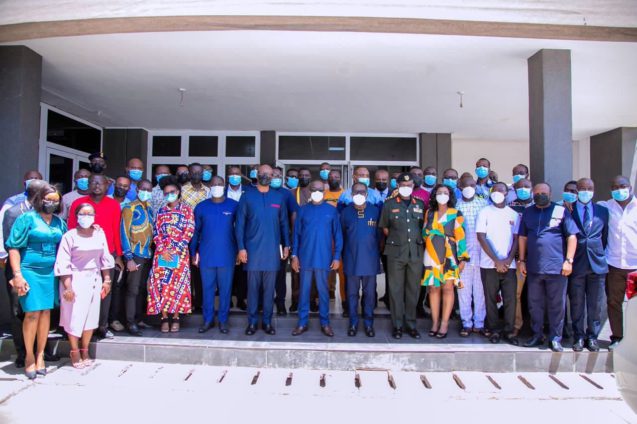Government has held an engagement session with the media aimed at sensitizing Journalists on Ghana’s newly drafted National Security Strategy (NSS).
The engagement is the first of three sessions put together by the National Security Ministry and the Ministry of Information in taking broad-based inputs from relevant stakeholders, the media inclusive, on the implementation of the NSS.

Participants included Journalists drawn from various television and radio networks in the Greater Accra, Central, Western, Volta, Western-North, and Oti Regions.
Addressing the participants, the National Security Minister, Albert Kan-Dapaah said government is using the engagements to primarily equip the media with the appropriate information on the document and how it will be implemented.
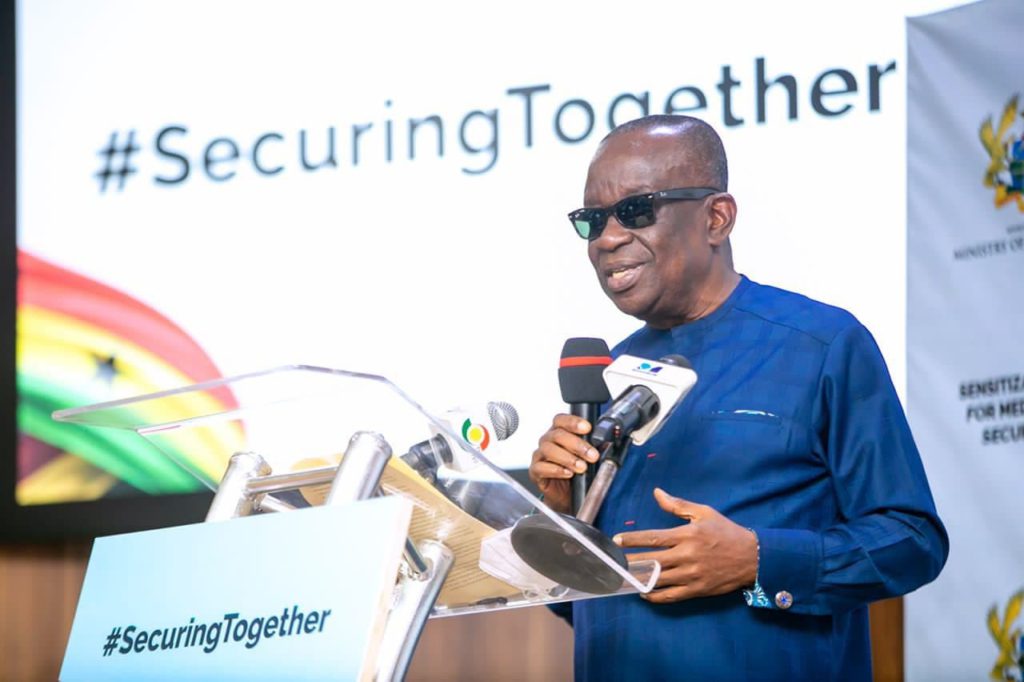
He emphasized the need for the media in the country to be circumspect in their daily reportage, especially on issues that have national security implications.
“The media by definition is an independent institution. There is a limit to the role of other accountability institutions but for the media, it possesses the independence that enables it to hold government to account. It is a very important duty the media play, which is why we get concerned
“That is why it is important that our media men and women don’t play with the security and stability of the country. Also, it is important that the media is able to do away with sensational stories that have very serious security implications, and not because it will help to sell newspapers and get viewership”, he said.
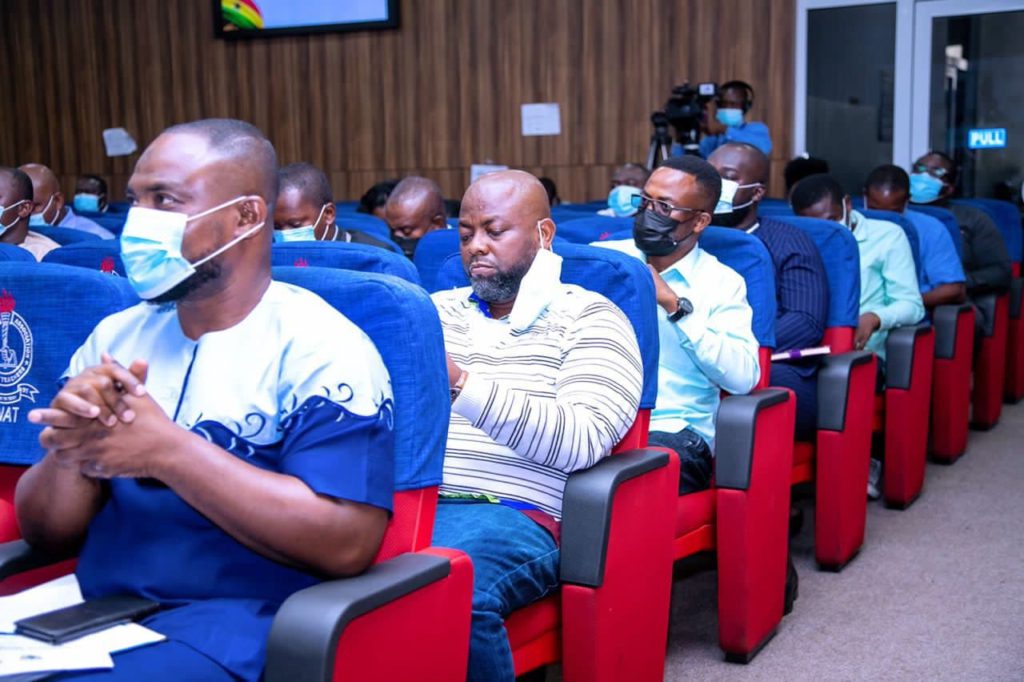
The NSS document was launched on 7th June, 2021 by President Akufo-Addo as part of measures to coordinate a national response effort to protect and safeguard the country from threats, risks, challenges to its security, and stability from both the domestic and international environments.
On his part, Minister for Information, Kojo Oppong Nkrumah whose Ministry facilitated the engagement, underscored the need for extensive education and sensitization on the content of the strategy.
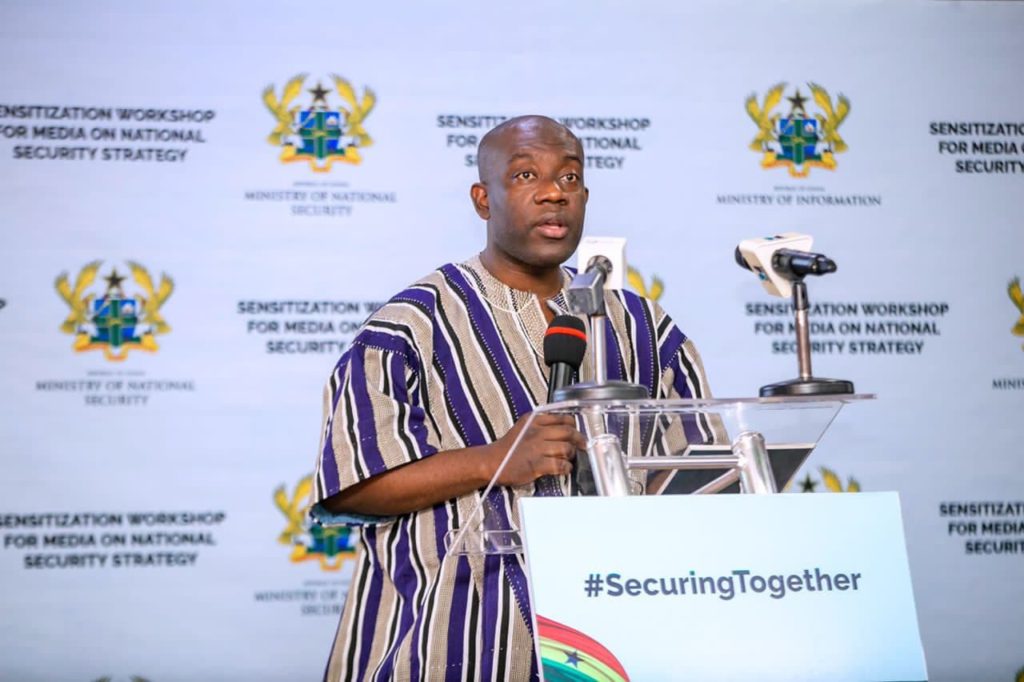
He said the engagement is important because it provides stakeholders the opportunity to deepen their understanding of their roles in the implementation of the strategy.
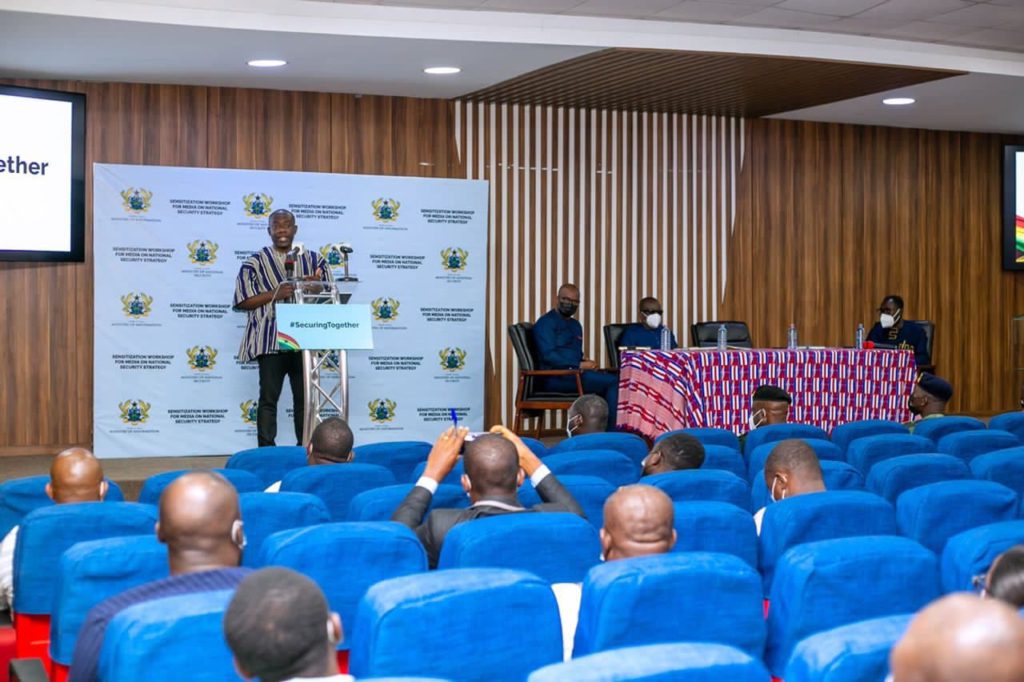
Latest Stories
-
Full text: Akufo-Addo acts on KPMG’s findings and recommendations on transactions between GRA and SML
6 mins -
UEFA U-17: Ghana’s Black Starlets to play Russia in opener
10 mins -
Mrs. Gertrude Pabi Wiredu
14 mins -
Veteran Nigerian actor Zulu Adigwe is dead
15 mins -
Pioneering Oral Health: Pepsodent’s 2023 Teledentistry initiative and its path forward
26 mins -
Kumasi International Airport will open to traffic in June – Transport Minister
32 mins -
Zack Orji gives details on his health condition, brain surgeries
59 mins -
Only 3 people defected from Movement for Change to NPP – Hopeson Adorye
60 mins -
Cause of current ‘dumsor’ is financial; ECG can’t publish load-shedding timetable – Kofi Kapito
1 hour -
SML/GRA contract brought ¢2.45bn in tax revenues to the state – KPMG report
1 hour -
Paris 2024: France ready to host Ghana and rest of world – France Sports Ambassador
1 hour -
KPMG audit reveals ¢1bn paid to SML for revenue mobilisation services from 2018 until suspension
1 hour -
Renegotiate SML contract – Akufo-Addo to GRA, Finance Ministry
2 hours -
Ignore calls by IES for Energy Minister’s removal – Kofi Abrefa Afena
2 hours -
CAF Confederation Cup: Dreams FC’s Karim Zito to implement offensive strategy against Zamalek
2 hours

